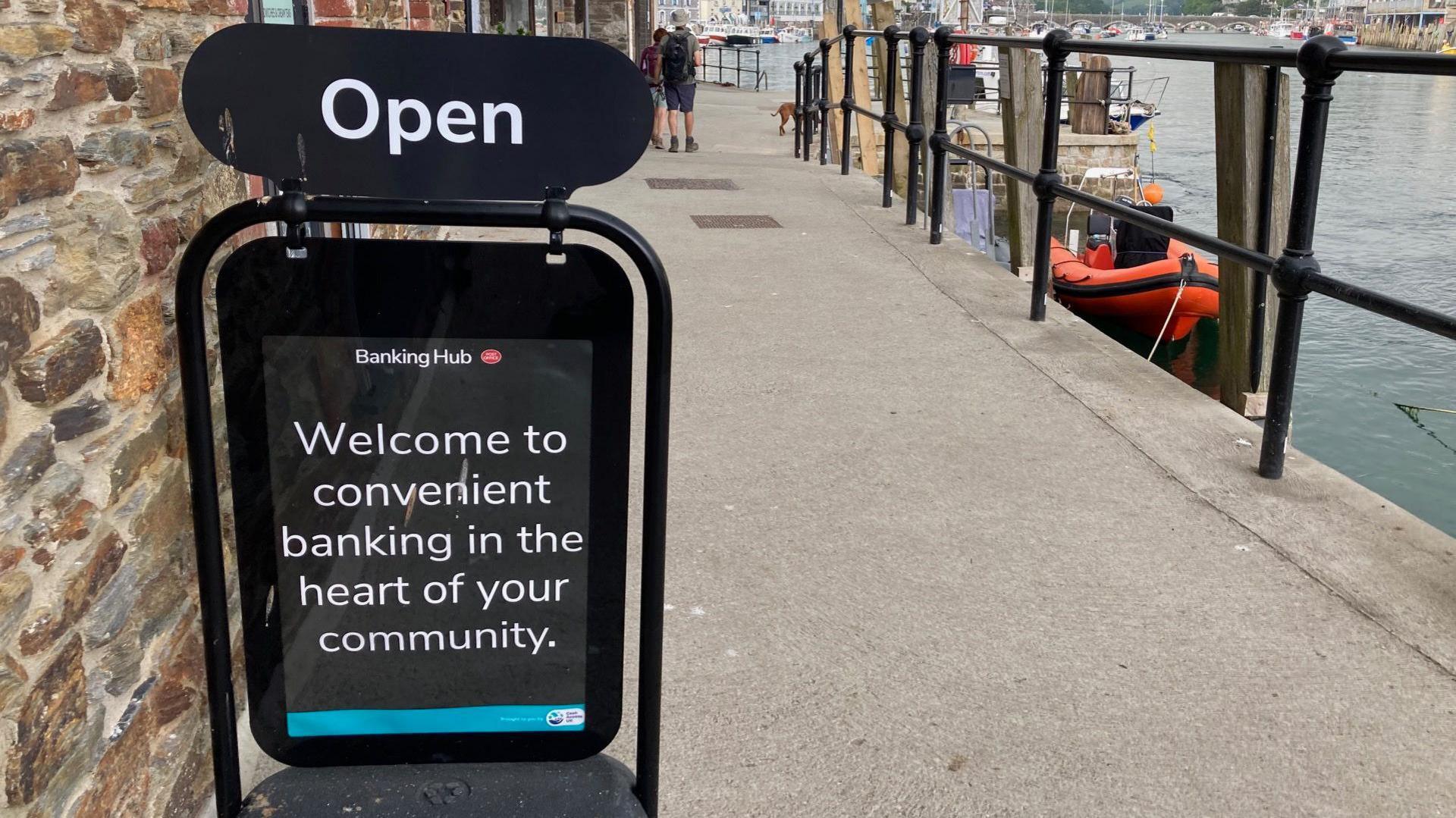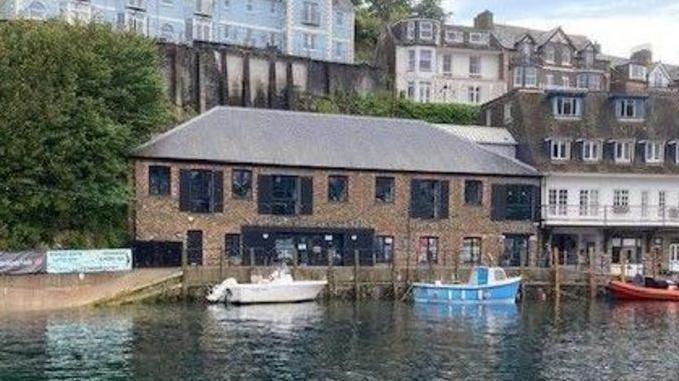New bank hubs to open but many don't have printers

Banking hubs have been established across the UK
- Published
Fifteen new banking hubs have been announced on the day stricter rules over branch closures and access to cash take effect.
The hubs, spaces shared by different banks, operate basic personal and business banking services.
The new rules mean they can open even if there is another operator in town, but questions have been raised over the standard of facilities.
Many have no printers installed, leaving people unable to get paper statements which may be requested by employers or landlords.
New-look banking
Figures from consumer association Which? show that 6,000 bank branches have closed in the last nine years, leaving many places with none at all and limiting access to cash.
Banks and building societies must now assess whether areas have reasonable access to cash when they close branches, under new rules - enshrined in law from the first time - taking effect on Wednesday and governed by the City watchdog, the Financial Conduct Authority (FCA).
If not, then they will need to provide more facilities, before closing a branch.
Such facilities could include shared hubs, often run by the Post Office, which allow customers of any bank to withdraw and deposit cash. Community workers from different banks visit on a rotating basis once a week.
Last bank in town has closure postponed
- Published12 September 2024
Cash-only spending in surprise jump as people budget
- Published24 July 2024
Listen: Cash, Cornwall, the King and I
- Attribution
However, problems have emerged at some of the hubs, with questions over the quality of service and investment by banks.
That includes many which do not have a printer, leaving customers unable to get paper copies of statements and documents.
Bosses were last week hauled in front of Economic Secretary to the Treasury, Tulip Siddiq, who told them to add to the services on offer at the hubs.
“Banking hubs are a lifeline for local communities that have lost their final bank branch. I’m confident that the banks will deliver on the commitment made [at the meeting], as well as take a more active approach to meeting the needs of local communities,” she said.
Bank-owned Cash Access UK, which delivers the hubs, said it would look into getting printers.
The number of people mainly using cash for day-to-day spending hit a four year high during the cost of living crisis, figures from the banking trade body UK Finance show.
Hubs are seen as key to ensuring those who are not digitally savvy, unable to access online services, or are vulnerable can still use banking services.
So far, 81 hubs are open. The government made a manifesto promise to have 350 operating in five years time, including 230 by the end of next year.

The banking hub in Looe is in one of the more picturesque spots in the country
There have been calls for the introduction of new hubs to be quicker and more widespread.
Ron Delnevo, who chairs the Payment Choice Alliance, described the current plan as an "empty gesture".
"This is not a genuine answer to the needs of thousands of communities around the UK that have been deserted by the big banks," he said.
"The fact that bank hubs are not required to have a 24/7 ATM is also ludicrous."
Fifteen new hubs have been announced on the day the FCA's new rules take effect. They include areas where there is still a building society but where, for example, the current branch's opening hours are restricted to three days. An assessment will have to consider an ATM.
Before now, under the old rules, a hub would not be eligible to be set up in such an area.
Locations of the new hubs
The new hubs will open in Sidcup, in London, Normanton in West Yorkshire, Hailsham in East Sussex, Frome in Somerset, Sheerness in Kent, Whitley Bay in Tyne and Wear, Rugeley in Staffordshire, Newquay in Cornwall, Market Harborough in Leicestershire, Thetford in Norfolk, Monmouth in Wales, Harpenden in Hertfordshire, Huntly in Aberdeenshire, Yeadon in West Yorkshire, and Morecambe in Lancashire.
The majority have been recommended by Link, which oversees the UK's cash access and ATM services.
"The new rules that have come into effect today are great news for consumers and businesses and will ensure that access to cash continues to be available on our High Streets for years to come," said its deputy chief executive, Adrian Roberts.
Last week, it was revealed the last bank in the Derbyshire town of Ripley had been “paused” owing to the new rules.